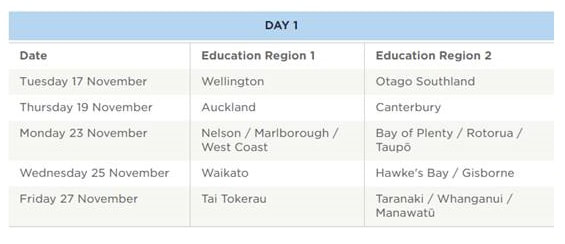Kia ora Cynthia,
Thank you for your email about school aged children attending early learning services. Apologies for the delay in getting back to, we have been consulting with our Operational Policy team here at the Ministry.
In the Education and Training Act 2020, it is stated in section 10(1) that an early childhood education and care centre is one that is used regularly for education and care of 3 or more children (not being children of the persons providing the education and care or children enrolled at a school who are being provided with education or care before or after school) under the age of 6 years. This means that children (in relation to an early childhood service, means the child attending or participating in the service) must be under the age of 6 to be attending the service.
The legal framework does not provide for the simultaneous care of older children. However, it does acknowledge that other children may sometime be present. For example, see Schedule 2(5) of the Education (Early Childhood Services) Regulations 2008 that sets out which children count for the purpose of determining adult:child ratios. Regulation 20A(2)(b) requires centre-based services to have exclusive use of the licensed premises. Therefore, home-schooled children are able to be present at an early learning service if they are in a separate space and supervised by adults who are not on session. This would be similar to providing out of school care at the same time that early learning is occurring.
Children and adults can attend an early learning service in situations that are of short duration and for a specific purpose, for example:
- dropping off or collecting a younger sibling with a parent or,
- attending an event at the centre with family or teachers (eg watching a performance).
When school aged children are present for a short duration, they must be supervised by an adult who is directly responsible for them and do not need to be counted in ratios. So if a child attends and their parent is an educator, then that educator can no longer be included in the ratio requirements.
Ngā mihi,
Hi
Thank you for your email. I have just one question – did the Ministry’s legal team review this as I requested? I understand legal services are different to the Operational Policy team, unless I am mistaken.
To which they responded:
Kia ora Cynthia,
I sought feedback from our Operational Policy team here at the Ministry. They advised that this situation is quite clear and it would be unnecessary to go to the Legal team, so they provided guidance to me on the matter based on their interpretation. If you feel as though you would like further legal interpretation, then we suggest that you seek your own legal advice on this matter.
Kia ora Cynthia – thank you for your message via our website last week.
We are aware that this has been an ongoing issue for some members of our organisation. We are currently not in a position to contest the advice from the Ministry of Education but we would be happy to receive the information you refer to.
I will be forwarding them copies. They did not elaborate on why they cannot contest the Ministry's advice.
Next Steps
Other alternatives would be for affected families to begin a petition, talk to their local MPs, or join together to consider pursuing a Judicial Review - which takes the matter to the High Court but incurs a $1350 filing fee plus legal costs.
I will post the response from the Ombudsman in due course.



 RSS Feed
RSS Feed
